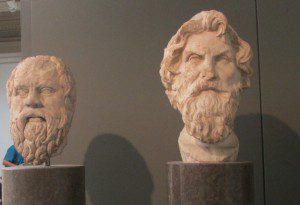By Paul Tough on Dominic Randolph, a teacher, who thinks standardized testing and IQ tests aren’t to be the focus. Instead, he calls people to character.
For the headmaster of an intensely competitive school, Randolph, who is 49, is surprisingly skeptical about many of the basic elements of a contemporary high-stakes American education. He did away with Advanced Placement classes in the high school soon after he arrived at Riverdale; he encourages his teachers to limit the homework they assign; and he says that the standardized tests that Riverdale and other private schools require for admission to kindergarten and to middle school are “a patently unfair system” because they evaluate students almost entirely by I.Q. “This push on tests,” he told me, “is missing out on some serious parts of what it means to be a successful human.”
The most critical missing piece, Randolph explained as we sat in his office last fall, is character — those essential traits of mind and habit that were drilled into him at boarding school in England and that also have deep roots in American history. “Whether it’s the pioneer in the Conestoga wagon or someone coming here in the 1920s from southern Italy, there was this idea in America that if you worked hard and you showed real grit, that you could be successful,” he said. “Strangely, we’ve now forgotten that. People who have an easy time of things, who get 800s on their SAT’s, I worry that those people get feedback that everything they’re doing is great. And I think as a result, we are actually setting them up for long-term failure. When that person suddenly has to face up to a difficult moment, then I think they’re screwed, to be honest. I don’t think they’ve grown the capacities to be able to handle that.”
Randolph has been pondering throughout his 23-year career as an educator the question of whether and how schools should impart good character. It has often felt like a lonely quest, but it has led him in some interesting directions.
… The list included some we think of as traditional noble traits, like bravery, citizenship, fairness, wisdom and integrity; others that veer into the emotional realm, like love, humor, zest and appreciation of beauty; and still others that are more concerned with day-to-day human interactions: social intelligence (the ability to recognize interpersonal dynamics and adapt quickly to different social situations), kindness, self-regulation, gratitude.
In most societies, Seligman and Peterson wrote, these strengths were considered to have a moral valence, and in many cases they overlapped with religious laws and strictures. But their true importance did not come from their relationship to any system of ethics or moral laws but from their practical benefit: cultivating these strengths represented a reliable path to “the good life,” a life that was not just happy but also meaningful and fulfilling.
Six years after that first meeting, Levin and Randolph are trying to put this conception of character into action in their schools. In the process, they have found themselves wrestling with questions that have long confounded not just educators but anyone trying to nurture a thriving child or simply live a good life. What is good character? Is it really something that can be taught in a formal way, in the classroom, or is it the responsibility of the family, something that is inculcated gradually over years of experience? Which qualities matter most for a child trying to negotiate his way to a successful and autonomous adulthood? And are the answers to those questions the same in Harlem and in Riverdale?











